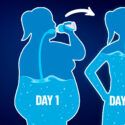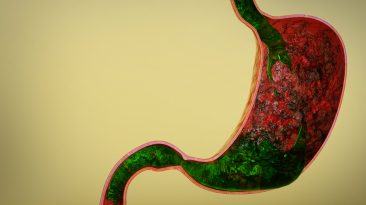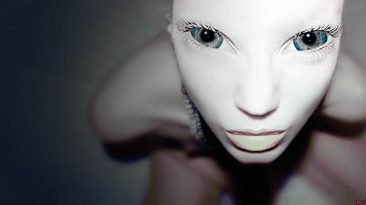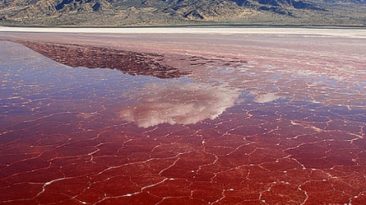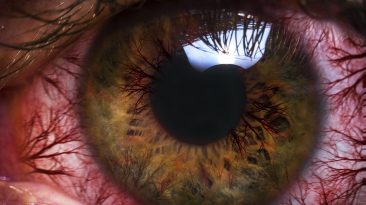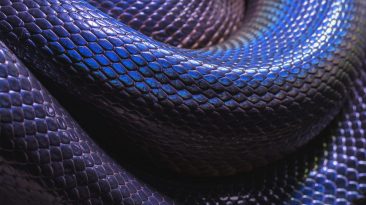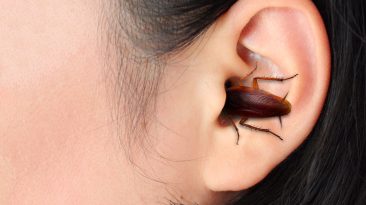How often do you wash your sheets? Especially if you’re a single man between the ages of 18 and 25. Because according to one survey, half of this demographic only change their sheets four times a year.
So if you’re one of those guys, I hope I can convince you to change your ways. Sleeping in dirty sheets is nasty. What microorganisms live in your sheets? Would you get bed bugs? And why is a chimpanzee’s bed cleaner than yours?
Chimpanzees do a better job at keeping their sleeping areas clean than we do. Researchers in Tanzania found that chimp nests had fewer skin cells, fecal and oral matter, and bacteria than human beds.
But why are the chimpanzee nests so much cleaner than our beds? Well, for one thing, they don’t sleep in the same spot night after night. Moving to a new nest every night makes it difficult for pathogens and pests to build up.
But us humans usually sleep in the same bed night after night. And when you don’t wash your sheets, bacteria, skin, and even fecal cells, build up into one nasty layer. You spend a lot of time in your bed. And while you’re in there for five, seven, or eight hours, your body is in close contact with whatever is on your sheets.
And, even if you think you’re sleeping alone, there is a whole world of microorganisms thriving in your bed. Any fungi, bacteria, or pollen that hitched a ride on you during the day could end up between your sheets.
If you like to cuddle with a pet, you also have animal dander, and whatever they rolled around in, to contend with. But it’s not just foreign microbes that dirty your sheets. You are also a culprit.
Your body sheds the entire outer layer of your skin every 2 – 4 weeks, or about 15 million skin cells per night. And your 2 – 5 million sweat glands can produce more than 13 liters (3 gallons) of sweat and oil in a single day.
Can you guess where some of that ends up? Yeah, it gets into your bed.
Now, it wouldn’t kill you to sleep in dirty sheets for a year. But it would make your life pretty miserable. If you have eczema, contact dermatitis, or are one of the 24 million Americans with an allergy, your contaminated sheets would trigger symptoms.
And even if you aren’t allergic to it, all the dust that builds up could give you a stuffy nose and make you sneeze throughout the night. And it’s not just dust that you should worry about. Because with dust, comes dust mites.
These microscopic organisms eat your cast-off skin cells, so your sheets are their local restaurant. Thankfully, they don’t carry disease. But an enzyme in their poop could give you an allergy that causes asthma and a constant itchy, runny nose.
And what about the dreaded bed bug? Well, the idea that filth attracts bed bugs is a myth. These blood-sucking insects live in walls, furniture, and mattresses. They hitch a ride on clothing and luggage to travel to new feasting grounds.
Even the cleanest people can get bed bugs. Because they’re not attracted to dirt, they’re attracted to you. But it would be harder to get rid of bedbugs if you didn’t wash your sheets for a year.
And if you have an open wound, eat in bed, let your pet sleep in your bed, or sweat a lot during the night, you have even more reason to wash your sheets regularly. Just make sure you use hot water to kill microorganisms. Washing your sheets once a week will help keep your body clean.
Sources
- “How Often Should You Change Your Sheets? Plus, Why It Matters”. 2021. Healthline.
- “Think Chimpanzee Beds Are Dirtier Than Human Ones? Think Again”. Shipman, Matt. 2018. NC State News.
- “Ecology of sleeping: the microbial and arthropod associates of chimpanzee beds”. 2021. Royal Society Open Science.
- “How Bad Is It To Not Wash Your Sheets Every Week?”. 2020. Reader’s Digest.
- “What Would Happen If You Never Washed Your Sheets? – Digg”. Rousseau, Steve. 2017. digg.com.
- “Your pillowcase has more bacteria than your toilet seat if you don’t wash your sheets often”. Gina Echevarria and Benji Jone.s 2021. Business Insider.




